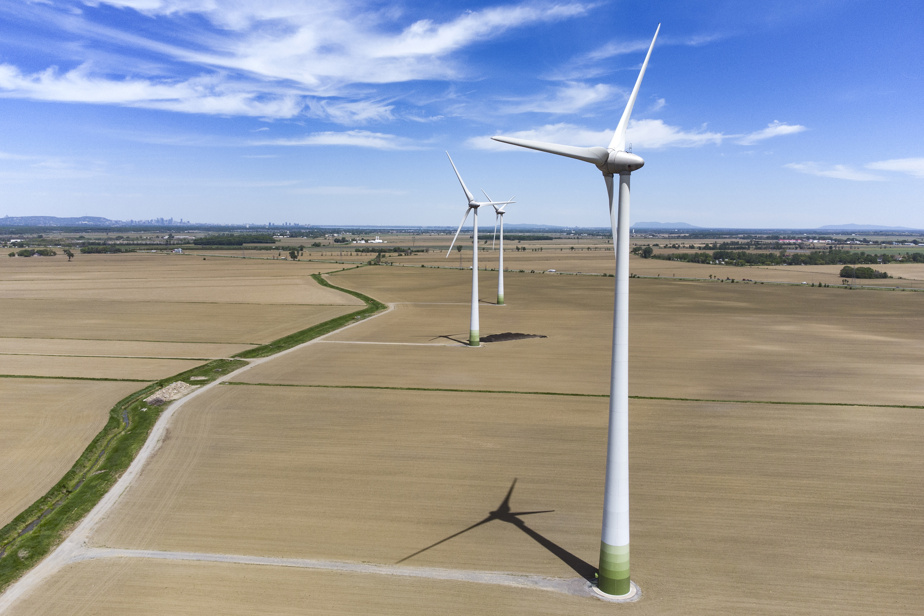
Quebec grain producers are concerned about the future growth of wind turbines, which could reduce cultivated areas and eat into the province’s food security.
Before announcing the wind expansion, the government of Quebec and Hydro-Québec could have at least consulted with those who occupy the land and cultivate it, Christian Overbeek, president of the Produces de Grains du Quebec, asked in an interview. Press.
Since the announcement of Hydro-Québec’s action plan, which plans to triple wind power production over the next ten years, promoters have already appeared in rural Quebec to get a feel for the wind, he said.
“There are some who think that most cereal producers will wait until then,” says Christian Overbeek. According to him, this is far from it.
There are considerations other than royalties paid to producers who host wind turbines on their fields. “A wind turbine is not just a pole in the middle of a field,” he says. There are access roads, interchange and transmission facilities, not to mention the heavy equipment that disturbs the ground during construction. It is more aggressive than the promoters say. »
In Quebec, cultivated land is eaten every year.
Christian Overbeek, president of Quebec Grain Producers
Hydro-Québec believes that increasing the number of wind turbines is the most cost-effective way to quickly increase its electricity production.
The new wind turbines will cover an area equivalent to 15 times the surface area of the island of Montreal, explained Hydro-Québec CEO Michel Sabia, who presented his plan to increase wind production to 10,000 megawatts by 2035.
Half of the cultivated land
Social acceptability of the host community is one of the criteria set by Hydro-Québec in its calls for tenders for the purchase of wind power. Christian Overbeek wants to give more priority to local concerns in the selection of projects to submit to the state company.
The president of the Produces de Grains du Québec raised the possibility of demanding that agricultural operations be as minimally harmful as possible or that the energy security of communities hosting wind turbines should be prioritized.
Other solutions are also being considered to increase power generation, according to him, such as building wind turbines in the ocean or outside cultivated areas. He opined that energy issues should not come before food security.
Field crops are the business of 9,500 producers who grow corn, wheat, barley, oats, soybeans and canola on land representing half of Quebec’s total cultivated area.
Grain producers in Quebec are members of the Union of Agricultural Producers, which recently spoke out against the Boralex wind project in the Arthabasca region.





